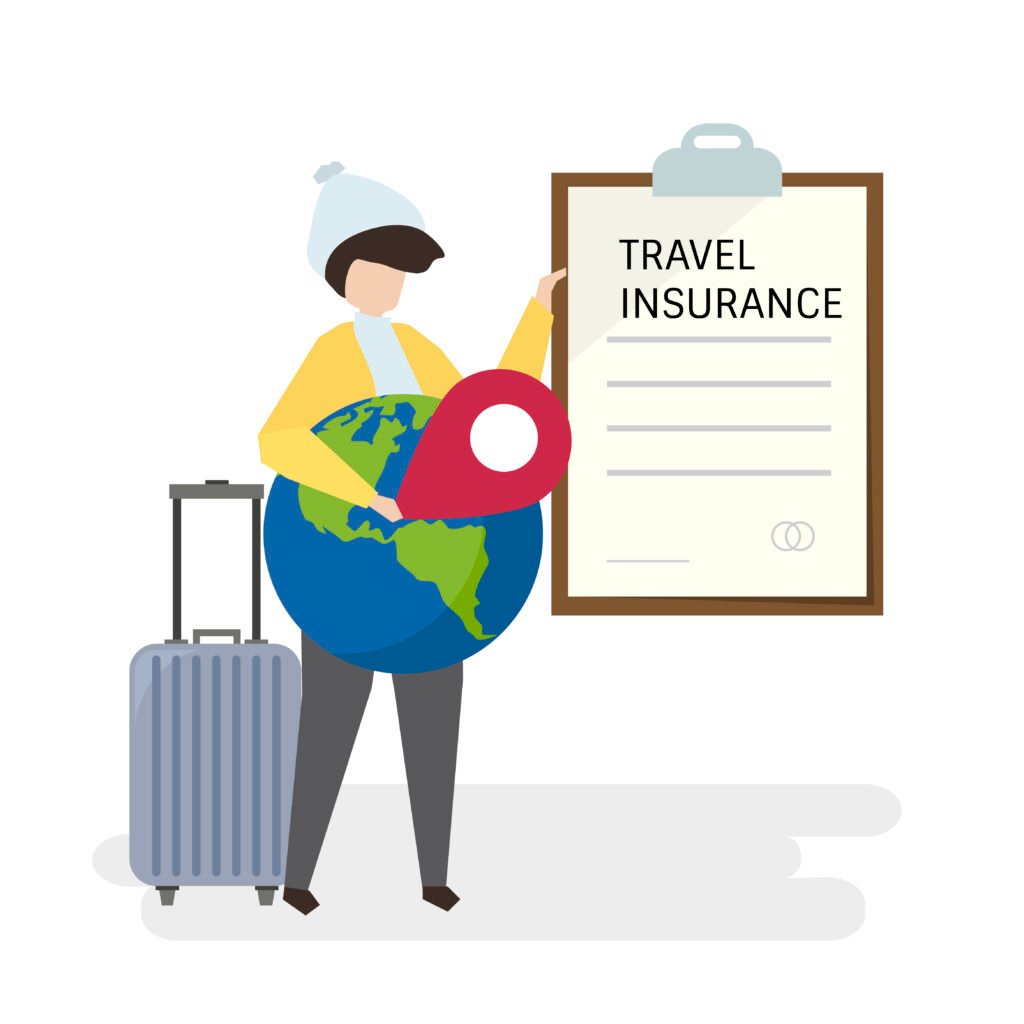Your Ultimate Guide
Find the Best Travel Insurance Companies of 2025
Protect your travel plans with the most reliable insurance providers. Compare coverage, cost, and more to get the best deal for your next adventure!

Travel Insurance Companies
Top 10 Best Travel Insurance Companies

Travelex Insurance Services

Nationwide Insurance

Seven Corners

Berkshire Hathaway Travel Protection

Tin Leg

WorldTrips

Allianz Travel Insurance

Travel Insured International

International Medical Group (IMG)

GeoBlue
How to Choose the Right Travel Insurance for Your Trip
Choosing the best travel insurance depends on several factors that can vary from trip to trip. Here’s a simple guide to help you decide which travel insurance policy is right for you:
- 1. Assess Your Travel Needs
- 2. Understand Coverage Types
- 3. Compare Plans
- 4. Check the Provider’s Reputation
- 5. Look for Optional Add-Ons
International vs. Domestic:
For international travel, medical emergencies can be costly and your regular health insurance might not cover you. So, focus on medical coverage and emergency evacuation. For domestic trips, trip cancellation, lost luggage, and travel delays are more common concerns, so prioritize trip cancellation and baggage protection.
Type of Trip:
Consider the nature of your trip. If you’re planning adventure travel (e.g., skiing or hiking), make sure your insurance covers high-risk activities. If you’re traveling for business, check if the policy covers trip delays or business equipment in case your gear gets lost or delayed.
Trip Cancellation:
This is essential if you have non-refundable travel costs. It covers you if you need to cancel due to illness, emergency, or unforeseen events.Medical Coverage:
This is especially important for international travel. It covers medical emergencies, doctor visits, hospital bills, and medical evacuation if you’re seriously injured and need to be transported to a medical facility.Baggage Coverage:
This covers you if your luggage is lost, stolen, or damaged during the trip. It also often includes baggage delay coverage, which reimburses you for the cost of essentials if your baggage is delayed.Trip Interruption:
If your trip is cut short unexpectedly (e.g., due to illness or an emergency), this type of insurance reimburses your unused trip costs and additional expenses incurred to return home.
Cost vs. Coverage:
While price is important, don’t skimp on coverage. A low-cost plan might seem attractive but could leave you underinsured, especially for medical emergencies or trip interruptions. Compare policies to find one that balances both affordability and comprehensive coverage.
Exclusions:
Check the fine print for exclusions. Common exclusions include pre-existing medical conditions or high-risk activities. Some policies will cover these if you purchase an additional rider or upgrade your plan.
Customer Reviews:
Read reviews to understand how well the provider handles claims and customer service. A good provider should be responsive, easy to contact, and handle claims efficiently.
Claims Process:
Look for a provider with a straightforward and quick claims process. You want to know that, in case of an emergency, the provider will handle your claim without delays or unnecessary paperwork.
Cancel for Any Reason:
This upgrade allows you to cancel your trip for any reason, even if it’s not covered under the standard policy. This is especially useful for travelers who want the flexibility to change plans.
Rental Car Coverage:
If you’re renting a car during your trip, rental car coverage protects you against damage, theft, or accidents, saving you money on rental agency insurance.
Travel Delay:
If your trip is delayed for reasons like weather or mechanical failure, travel delay coverage reimburses you for meals, accommodations, and other necessary expenses.
What’s Not Covered by Travel Insurance?
While travel insurance can provide extensive coverage, it’s important to know the exclusions before purchasing a plan. Common exclusions include:
- Pre-existing medical conditions: Most plans exclude coverage for existing health issues unless a specific waiver is purchased.
- Adventure sports: Activities like bungee jumping, skiing, or scuba diving may not be covered unless you opt for a special plan.
- Natural disasters: Some plans won’t cover cancellations or losses due to natural events unless they’re specifically mentioned in the policy.
- Traveling against advice: If you travel to a country with a government travel warning, your insurance may be void.

What Does Travel Insurance Cover?
Travel insurance provides protection for a variety of unexpected events that may happen before or during your trip. Some common coverages include:

Trip cancellation: Recover lost trip costs if you need to cancel your trip due to an emergency.
Medical coverage: Medical expenses and evacuation in case of illness or injury while traveling.
Lost baggage: Compensation for lost, damaged, or delayed baggage.
Travel delays: Covers extra costs caused by delays, such as accommodation or meals.
Emergency evacuation: Coverage for getting you to a medical facility in case of an emergency.
“Different plans offer different levels of coverage, so make sure the plan you choose covers what’s important for your travel needs.”
How Much Does Travel Insurance Cost?
Travel insurance typically costs 4% to 6% of your total trip cost. For example:
$1,000 trip: ~$59
$2,500 trip: ~$110
$5,000 trip: ~$203
$20,000 trip: ~$1,053
Factors Affecting Premiums:
Trip cost & duration: Higher trip cost = higher premium.
Traveler’s age: Older travelers usually pay more.
Destination: Expensive destinations (like the U.S.) may increase premiums.
Coverage level: More comprehensive coverage raises costs.

What’s a Good Deal?
A premium around 4% to 6% of your trip cost is typical. Lower premiums may mean limited coverage; higher premiums usually include more benefits or coverage for higher risks.
What Does Travel Insurance Cover?
Travel insurance provides protection for a variety of unexpected events that may happen before or during your trip. Some common coverages include:
Pros
Covers medical emergencies abroad when regular insurance doesn't.
Protects non-refundable trip costs like flights, hotels, and tours.
Reimburses baggage loss, delay, and missed connections.
Covers travel delays, including hotel stays and meals.
24/7 travel assistance for emergencies and lost documents.
Cons
Premiums can add to your trip cost (typically 4%-8% of the total trip).
Excludes pre-existing conditions or certain high-risk activities.
Claims process can be slow, and some policies are hard to navigate.
Redundant if you have similar coverage through credit cards or other insurance.
Some policies may not cover cancellations due to reasons like pandemics or travel warnings.
Frequently Asked Questions (FAQ)
Yes, travel insurance is worth it for most travelers. It provides peace of mind by covering unexpected events like medical emergencies, trip cancellations, lost baggage, and more. Without insurance, you could face significant out-of-pocket expenses.
While short trips may seem less risky, travel insurance can still be valuable. It covers unexpected situations like flight delays, medical emergencies, or even lost luggage. For peace of mind, especially when traveling internationally, insurance is a wise investment.
Yes, you can purchase travel insurance at any time before you leave for your trip. However, buying it as soon as possible after booking is recommended to maximize coverage, especially for trip cancellation benefits and pre-existing condition waivers.
Yes, most comprehensive travel insurance policies cover lost, stolen, or damaged baggage. However, there are typically coverage limits, and specific exclusions may apply (e.g., electronics or high-value items).
Common types of travel insurance include:
Trip Cancellation: Protects against non-refundable trip costs if you have to cancel.
Medical Coverage: Covers emergency medical expenses while traveling.
Baggage Coverage: Reimburses for lost, damaged, or delayed luggage.
Travel Delay: Helps with additional expenses due to trip delays.
Emergency Evacuation: Covers transportation to a medical facility in case of emergency.